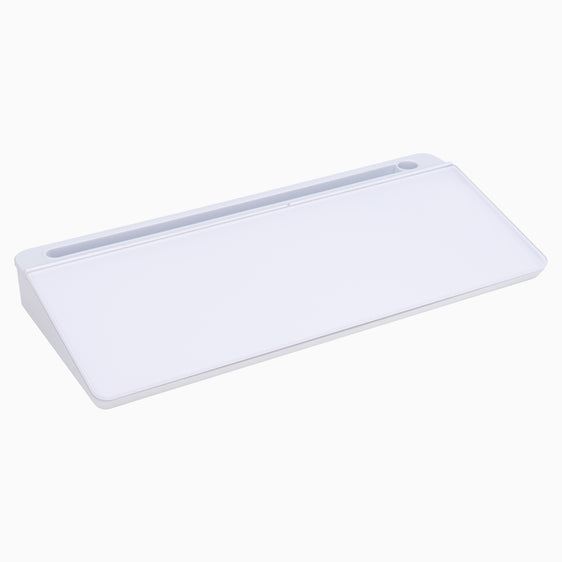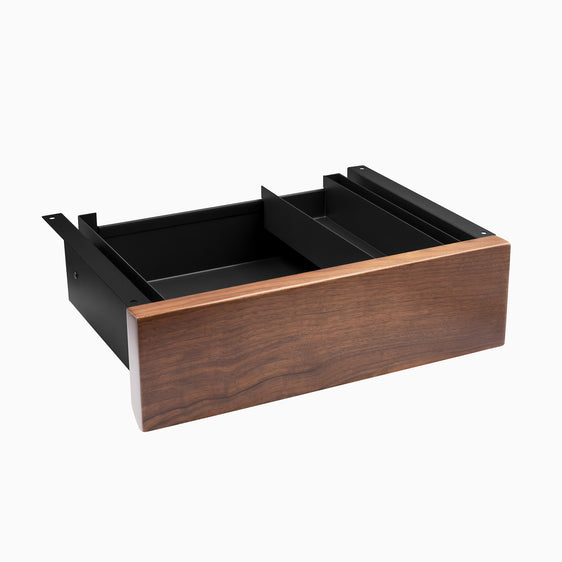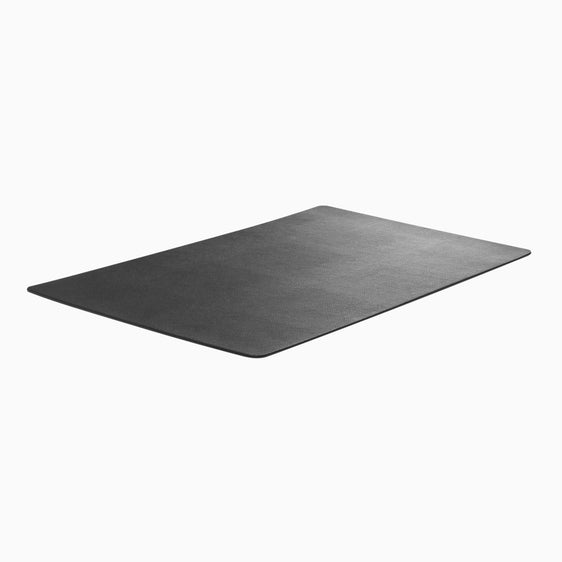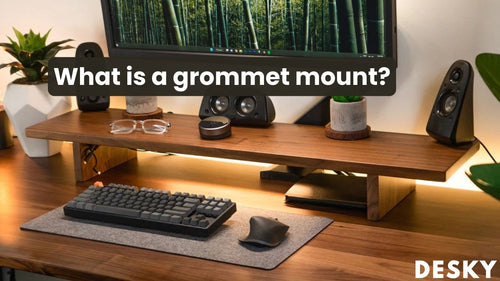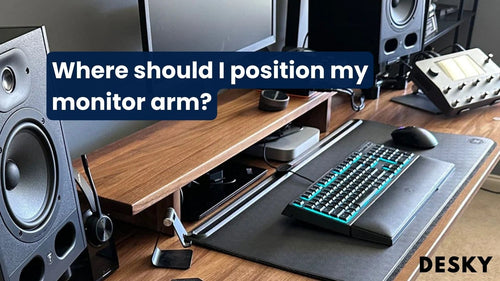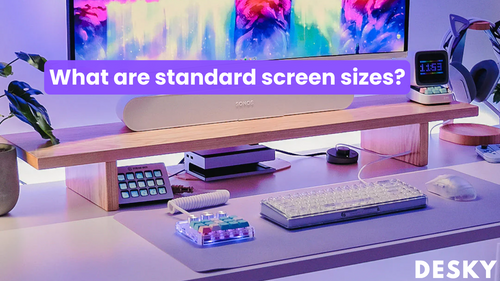
FAQ
Should office desk be in bedroom or living room?
Hayden AdamsDeciding the location of your office desk can truly impact your quality of work and life. Therefore, this choice holds significance. As specialists in ergonomic office furniture at Desky, we've collated a comprehensive bedroom placement guide to help you make an informed decision regarding desk position in your bedroom – but should it be in your bedroom or living room?
Where Should a Desk Go in a House?
The placement of a desk in your home does not have to adhere strictly to traditional home office norms. One might think that the best setting for a desk is a dedicated office room, but this isn't always on hand. Instead, a creative approach can be adopted.
You might situate the desk behind your sofa, making good use of the living room space. Another convenient spot is by a window; apart from offering a splendid view, such a location favors natural light conducive to work. Along a wall, the desk can effectively replace a console table.
In managing potential clutter, desks with integrated storage are an asset. Alternatively, consider installing shelves and utilizing stylish baskets or boxes to hold office paraphernalia. This way, the elderly-style office look is avoided, and the desk integrates seamlessly into your home setting.
Best direction for a Desk to Face
Surprisingly, desk orientation can impact work productivity significantly. According to the principles of Feng Shui and Vastu Shastra, facing east is ideal for peak work performance and mind-body harmony.
If this cannot be achieved, facing the north is the next best thing. Facing south or west is seen as less beneficial. Therefore, these directions should be avoided if possible.
Should My Desk Face the Window or Wall?
Though placing your desk facing a window might seem appealing, due to the beautiful scenery, experts advise against this. Much of the concern revolves around adverse distractions that might hamper productivity.
As a rule, opt for positioning the desk against the window, towards the room's middle, and facing the entrance. This setup not only lessens distractions but also ensures you can monitor anyone entering or leaving the office.
{{ spec_dual_hardwood_desk }}
Good Size Desk For Work From Home
Desk Width
The desk width, often referred to as the desk's length, plays a vital role in its efficacy. For accommodating a computer monitor, a minimum width of about 25 inches is considered ideal.
Desk manufacturers typically offer desks in standard sizes, including 48, 60, and 72 inches. It's essential to consider the tasks expected to be performed on the desk while deciding the width.
Why 30-Inch Desk Isn't Too Small For Desk Depth
Despite typical desk depths ranging from 20 to 30 inches, a 30-inch desk doesn't imply a cramped workspace. Its depth accommodates enough room for your essentials, depending on its intended use, its occupied space, and the objects placed on it.
Most desks come with depths between 24 and 30 inches, thus providing ample room for diverse needs. The final decision, however, will depend on your specific requirements.
Average Office Desk Size
When we discuss office desks, we find that an average desk size tends to hover around 60 inches wide, 30 inches deep, and 29 inches high. However, these dimensions can oscillate based on the furniture manufacturer or based on your space requirements and personal preferences.
The paramount element to keep in mind is the width of the desk, which will proportionally affect the workspace available.
Key Features of Optimal Work Desk:
- A comfortable size allows for a pleasant and efficient work environment.
- Fully accommodating: capable of supporting crucial equipment like a computer monitor.
- Thoughtful dimensions: maintaining an average office desk size
When picking a work desk for a home office, these factors play an essential role in ensuring comfort and productivity. An adequate workspace aids in maximizing efficiency, while the right desk size caters to individual needs and the available space.
Accommodating Your Desk: Space Considerations

Proper planning can lead to efficient use of available space, whilst making your workspace comfortable. A useful rule of thumb is to reserve around 48 inches of open space behind your desk.
This ensures you have plenty of freedom to move around and prevents a cluttered workspace. A strategically placed desk, like one placed against a wall, can help maximise the usage of space.
Best Desk Position
While finding the perfect location and orientation for your desk, adhere to the guidelines mentioned above. Ideal performance is associated with placing the desk in the room's middle and facing the entrance. Notwithstanding, individual peculiarities should also influence placement decisions.
Since perfect desk placement depends on various factors such as room size, available lighting, noise level, and, above all, personal comfort, it may require some tweaking and modifications before you find the optimal location.
Should Work Desks Be In Bedroom
Introducing an office area into a bedroom may seem convenient, but there's room for potential issues. Staying too close to your work duties in the space where sleep happens could eventually lead to sleep disturbances. Plus, maintaining the separation between rest and work encourages better sleep hygiene.
In contrast, if your bedroom offers ample space, positioning a desk opposite your bed might be beneficial. To enhance this setup, consider adding a partition or screen to keep your sleeping and working areas distinct. It's a creative way to secure a workspace without infringing on your relaxation area.
Placement Of Desk In A Bedroom According To Feng Shui
Frequently, space constraints mean your bedroom doubles as an office. However, with expert guidance such as that from feng shui master and architect, R.D. Chin, a desk placement solution often arises.
According to this theory, your desk should rest in the 'power position' of your room, which usually resides diagonally opposite to the left of the door. This feng shui advice holds whether you're utilizing the bedroom or another room for work.
Best Place to Put a Desk In An Office
Workplace desk positioning largely depends on individual needs and room layout. Ideally, most people prefer situating their desks against a wall with windows. Window proximity drives multiple advantages, including natural light exposure and outside views, increasing overall productivity and workplace peace.
Desk placement next to windows tends to mimic the sensation of being outdoors, a welcome remedy for those unable to take frequent outdoor breaks.
Is It OK To Have A Desk In The Living Room?
Setting up a desk in your living room can be a successful venture, provided you take careful room layout considerations into account. Finding the right spot for your home office area that doesn't clash with your primary seating space or make your living room appear congested is vital.
Ingenuity in your living room arrangement, coupled with your desk style choice, can present the answer. There's usually a unique solution for naturally incorporating a desk into a compact living room, even when dealing with smaller spaces like studio apartments.
Best Place to Position a Desk in the Living Room
Transform an underutilized corner into your personal office. You can arrange a Corner Standing Desk, ready to be transformed into a workspace whenever the need arises.
To cut distractions, avoid facing your desk towards the television; instead, quest for a serene focus point such as a wall or a window. The key lies in maintaining a clutter-free and organized area, fostering productivity and peace.
Concealing A Desk in the Living Room
Strategically positioning a couch, a tall plant, or a bookshelf around the work station can act as makeshift walls, concealing pending tasks or work chaos from the rest.
These movable barriers create both physical and visual partition, fostering work-home balance. One advantage of these ‘walls’ is that you can rearrange or relocate them anytime as per your preference.
Where To Place Desk If Space is Tight
Squeezed for space? Opt for multi-functional furniture pieces that also doubles up as a coffee table. Not only it serves as a workspace but also keeps the living room clutter-free.
Moreover, retractable desks are a great option where space is at a premium. When not working, you can fold it and enjoy added space. Consider mounting your desk to the wall, allowing you to fold it away when it's not required.
Conclusion
Ultimately, the location choice of your office desk, whether in the bedroom or living room, is personal and depends largely on space and individual work needs. Balancing aesthetic considerations with practicality, privacy, and comfort leads to an optimally productive workspace.
By adhering to these tips, advice from Desky, and even some feng shui principles, you're sure to carve out an effective workspace that supports your professional endeavors and complements your home lifestyle.
Whether your workstation occupies an office, bedroom, or living room, remember the essentials: maintain a sectioned work area, optimize for stability, and leverage tranquillity afforded by window placements.
About the author

Desky
Work better. Be more productive.

